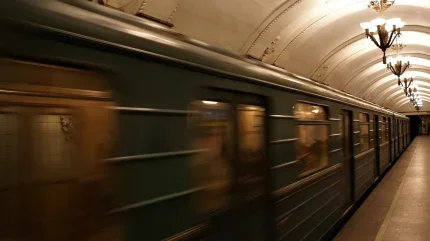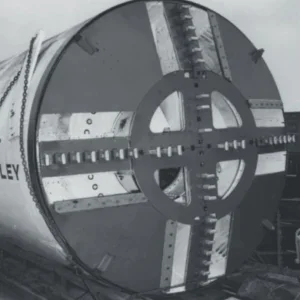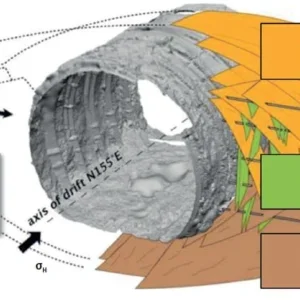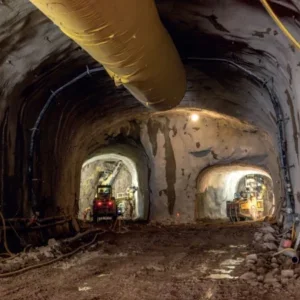
For Alfredo Garrido, one of the more interesting challenges in his day-to-day duties is checking up everything and interacting with his co-workers on the field service team. His job experience has taken him from China to the United States, Russia and now to Mexico.
He’s been in Mexico City for seven months working on the 10.2m diameter EPBM that is boring a 7.7km tunnel for the city’s new metro Line 12. For Alfredo, who is from Spain, this job offers him the unique opportunity of working in a country that shares his native language.
“It’s very easy for me,” he says. “But in China for example, at first communication is difficult, but later you make a connection and the people who are mechanics, who don’t speak English, understand the system and I understand the system, so it’s easy. But here in Mexico it’s very easy.”
Alfredo is originally from Asturias in the northern part of Spain. Working in tunnelling wasn’t something he immediately started out doing, or something he had planned on doing.
He attended a technical school, focusing on welding and hydraulics. At one point he was doing hydraulic work for a Spanish company on a contract with Mitsubishi, which had two TBMs at a site near his home. When that contract finished and the company didn’t have many jobs lined up, he interviewed with Robbins. It’s been seven years now that he’s worked with the US-based manufacturing company—first fixing cutters on the Abdalajis tunnel project on Spain’s high speed rail known as the AVE, now a field service manager.
Line 12 in Mexico City is Alfredo’s first tunnel project using an EPBM. He started with a double-shield TBM on the 7.1km twin tunnel Abdalajis project and has worked with single shield and smaller machines in Spain as well.
In China he worked on the Jinping-II Hydroelectric project where two main beam TBMs are excavating two of four 16.7km headrace tunnels (the other two are drill and blast). He also worked on the two 6.36m diameter main beam TBMs that are being used to excavate Line 6 for Chongqing Metro in China.
He says he enjoys working with hard rock TBMs because that’s what he’s used to, but the EPBM has its advantages too.
“Before in the Chongqing metro it was a main beam and you don’t have assembly. It’s only the rock so you have a lot of water and a lot of dust. Here it is very clean,” he says. “And normally for a metro it’s only for one line, and this is for two lines, so it’s very big. You have space in the machine.”
Working with him on the EPBM are three other Robbins field service staff and communication is important. “This job is continuous. Every day I’m checking all the hydraulic systems, the pressure, the flow, the cylinders,” he says. Keeping updated with everyone is a necessity if there are any problems and for planned maintenance at the end of each week.
It’s been four years now that Alfredo has worked around the world. Though he does miss his house in Spain where he enjoys fishing and hunting in his spare time—hobbies that aren’t easy to pursue in an urban environment—he is fortunate to have his wife and three-year-old son living with him in Mexico City.
“We live about 5km from the job site in a nice neighbourhood called Coyoacan,” he says, explaining that it’s one of the benefits of working on a metro project in a city. “They never travel with me because sometimes you have to live in a camp and it’s not good for a family.”
With tunnelling scheduled to end on the Line 12 project by August 2011, Alfredo will be in Mexico City for about half a year more.
His machine: an EPBM The man: Alfredo Garrido







